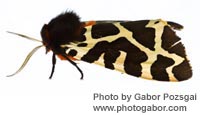Research Focus
Our group has helped to launch research on RNA processing in plants, following our discovery that animal pre-mRNAs failed to be processed in plant cell. Consequently, we have focused on the characterisation of SR proteins which are critical for splice selection and spliceosome assembly.
Using several methods of defining protein-protein interactions we have established networks of interacting splicing factors. In addition, we have started to characterise splicing factors, which are important for the regulation of spliceosome assembly, like cyclophilins and SR specific kinases.
Due to various gene duplication events plant have twice as much SR proteins as vertebrates, however, to date we have isolated and characterised most of them. We have shown for some of these SR proteins that deregulation has an impact on alternative splicing of some genes and consequently influence plant development.
Intriguingly, many of the SR proteins are themselves alternatively spliced and their splicing pattern is influenced by developmental and environmental conditions. Recently, we have uncovered alternative splicing events in the plant specifc SR protein subfamilies, which is evolutionary highly conserved from geen algae to flowering plants.
Publications
- Simpson, C.G., Fuller, J., Maronova, M., Kalyna, M., Davidson, D., McNicol, J., Barta, A., and Brown, J.W.S. (2008). Monitoring changes in alternative precursor messenger RNA splicing in multiple gene transcripts. The Plant Journal 53, 1035–1048.
- Lorkovic, Z.J., and Barta, A. (2008). Role of Cajal bodies and nucleolus in the maturation of the U1 snRNP in Arabidopsis. PLoS ONE 3(12). [e3989. Epub 2008 Dec 22]
- de la Fuente van Bentem, S., Anrather, D., Dohnal, I., Roitinger, E., Csaszar, E., Joore, J., Buijnink, J., Carreri, A., Forzani, C., Lorkovic, Z.J., Barta, A., Lecourieux, D., Verhounig, A., Jonak, C., and Hirt, H. (2008). Site-Specific Phosphorylation Profiling of Arabidopsis Proteins by Mass Spectrometry and Peptide Chip Analysis. Journal of Proteome Research 2008 Apr 24. [epub ahead of print]
- Simpson, C.G., Lewandowska, D., Fuller, J., Maronova, M., Kalyna, M., Davidson, D.,McNicol, J.,, Raczynska, D., Jarmolowski, A., Barta, A., and Brown, J.W.S. (2008). Alternative Splicing in Plants Biochemical Society Transactions 36(Pt 3), 508-10.
- Lorkovic, Z.J., Hilscher, J. and Barta, A. (2008). Co-localisation studies of Arabidopsis SR splicing factors reveal different types of speckles in plant cell nuclei. Experimental Cell Research 314(17), 3175-86. [epub 2008 Jul 2]
- Gullerova, M., Barta, A., Lorkovic, Z.J. (2007) Rct1, a nuclear RNA recognition motif-containing cyclophilin, regulates phosphorylation of the RNA polymerase II C-terminal domain. Molecular and Cellular Biology 27(10), 3601-11. Epub 2007 Mar 5.
- Kalyna, M., Lopato, S., Voronin, V., Barta, A. (2006). Evolutionary conservation and regulation of particular alternative splicing events in plant SR proteins. Nucleic Acids Research 34(16), 4395-405. Epub 2006 Aug 26.
- Gullerova, M., Barta, A., Lorkovic, Z.J. (2006). AtCyp59 is a multidomain cyclophilin from Arabidopsis thaliana that interacts with SR proteins and the C-terminal domain of the RNA polymerase II. RNA 12(4), 631-43. Epub 2006 Feb 22.
- Lorkovic, Z.J., Lehner, R., Forstner, C., Barta, A. (2005). Evolutionary conservation of minor U12-type spliceosome between plants and humans. RNA 11(7), 1095-107.
- Lorkovic, Z.J., Barta, A. (2004). Compartmentalization of the splicing machinery in plant cell nuclei. Trends Plant Science 9(12), 565-8. Review.
- Kalyna, M., Barta, A. (2004). A plethora of plant serine/arginine-rich proteins: redundancy or evolution of novel gene functions? Biochemical Society Transactions 32(Pt 4), 561-4.
- Lorkovic, Z.J., Lopato, S., Pexa, M., Lehner, R., Barta, A. (2004). Interactions of Arabidopsis RS domain containing cyclophilins with SR proteins and U1 and U11 small nuclear ribonucleoprotein-specific proteins suggest their involvement in pre-mRNA Splicing. Journal of Biological Chemistry 279(32), 33890-8. Epub 2004 May 27.
- Lorkovic, Z.J., Hilscher, J., Barta, A. (2004) Use of fluorescent protein tags to study nuclear organization of the spliceosomal machinery in transiently transformed living plant cells. Molecular Biology of the Cell 15(7), 3233-43. Epub 2004 May 7.
- Kalyna, M., Lopato, S., Barta, A. (2003). Ectopic expression of atRSZ33 reveals its function in splicing and causes pleiotropic changes in development. Molecular Biology of the Cell 14(9), 3565-77. Epub 2003 Jun 13.
- Lopato, S., Forstner, C., Kalyna, M., Hilscher, J., Langhammer, U., Indrapichate, K., Lorkovic, Z.J., Barta, A. (2002). Network of interactions of a novel plant-specific Arg/Ser-rich protein, at RSZ33, with atSC35-like splicing factors. Journal of Biological Chemistry 277(42), 39989-98. Epub 2002 Aug 9.
- Lorkovic, Z.J., Barta, A. (2002). Genome analysis: RNA recognition motif (RRM) and K homology (KH) domain RNA-binding proteins from the flowering plant Arabidopsis thaliana. Nucleic Acids Research 30(3), 623-35.
- Lopato, S., Gattoni, R., Fabini, G., Stevenin, J., Barta, A. (1999). A novel family of plant splicing factors with a Zn knuckle motif: examination of RNA binding and splicing activities. Plant Molecular Biology 39(4), 761-73.
- Lopato, S., Kalyna, M., Dorner, S., Kobayashi, R., Krainer, A.R., Barta, A. (1999). at SRp30, one of two SF2/ASF-like proteins from Arabidopsis thaliana, regulates splicing of specific plant genes. Genes and Development 13(8), 987-1001.
- Lopato, S., Waigmann, E., Barta, A. (1996). Characterization of a novel arginine/serine-rich splicing factor in Arabidopsis. Plant Cell 8(12), 2255-64.
- Lopato, S., Mayeda, A., Krainer, A.R., Barta, A. (1996). Pre-mRNA splicing in plants: characterization of Ser/Arg splicing factors. Proceedings of the National Academy of Sciences USA 93(7), 3074-9.
- Waigmann, E., Barta, A. (1992). Processing of chimeric introns in dicot plants: evidence for a close cooperation between 5' and 3' splice sites. Nucleic Acids Research 20(1), 75-81.
Key lab techniques: protein-protein interactions, RNA structure analysis, confocal microscopy, Arabidopsis transformation, plant tissue culture, gene expression analysis in plants, in vitro splicing assays.
Key lab reagents: GFP-, YFP- clones for plant SR proteins and subnuclear studies, Arabidopsis SR cDNAs, plant expression vectors.
Lab contact: Dr Maria Kalyna: maria.kalyna@univie.ac.at
Lab website: http://www.mfpl.ac.at/index.php?cid=68 |






